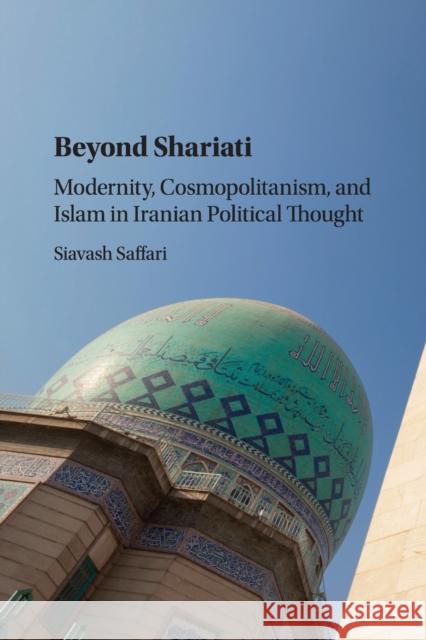Beyond Shariati: Modernity, Cosmopolitanism, and Islam in Iranian Political Thought » książka
topmenu
Beyond Shariati: Modernity, Cosmopolitanism, and Islam in Iranian Political Thought
ISBN-13: 9781316615751 / Angielski / Miękka / 2019 / 219 str.
Beyond Shariati: Modernity, Cosmopolitanism, and Islam in Iranian Political Thought
ISBN-13: 9781316615751 / Angielski / Miękka / 2019 / 219 str.
cena 154,78
(netto: 147,41 VAT: 5%)
Najniższa cena z 30 dni: 140,99
(netto: 147,41 VAT: 5%)
Najniższa cena z 30 dni: 140,99
Termin realizacji zamówienia:
ok. 16-18 dni roboczych.
ok. 16-18 dni roboczych.
Darmowa dostawa!
A new reading of Ali Shariati's intellectual legacy on Iranian political discourse and concepts of Islam and modernity.











